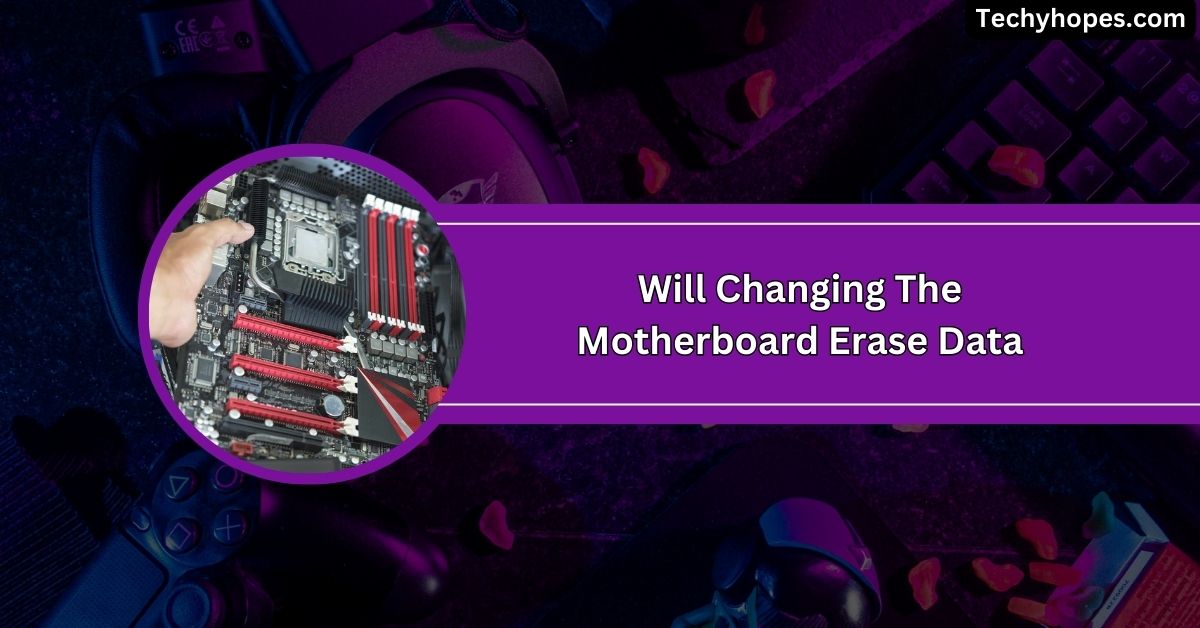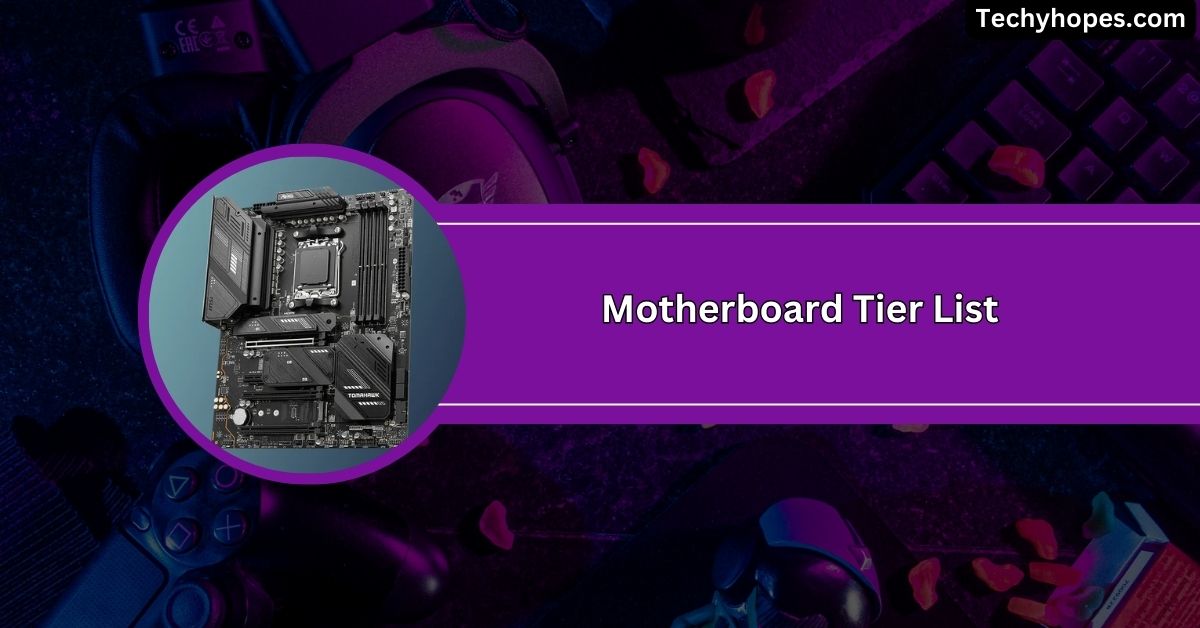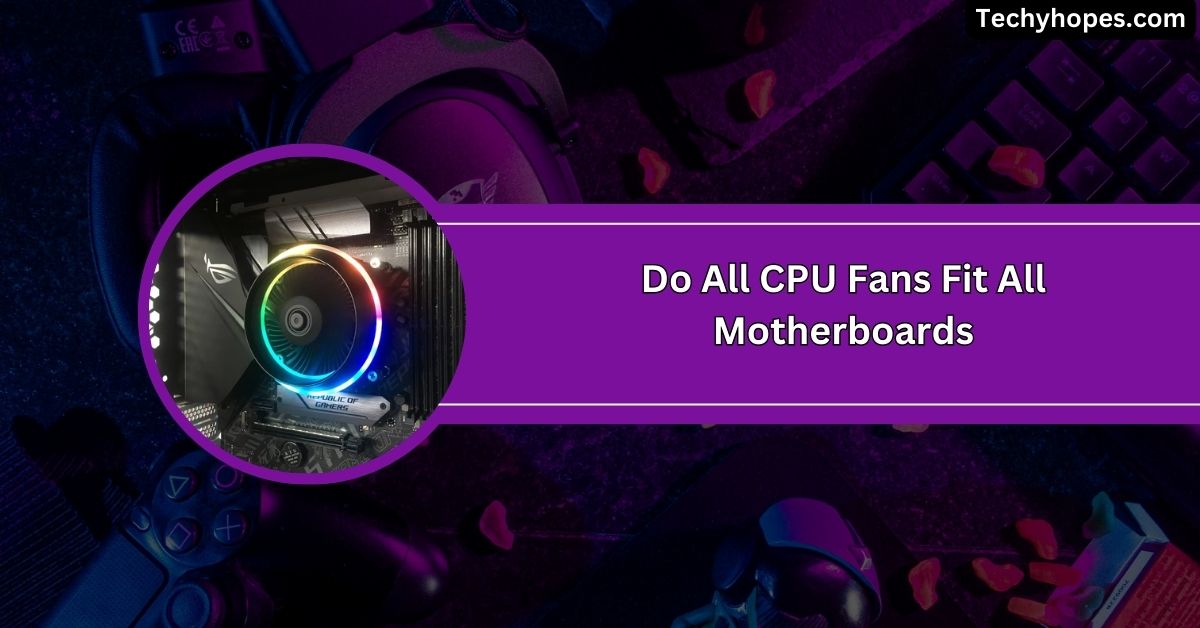When building or upgrading a PC, one of the most important factors is whether your components work well together.
Yes, a motherboard can bottleneck a GPU, especially if it lacks sufficient PCIe lanes or uses older versions like PCIe 2.0. However, most modern motherboards typically don’t cause significant bottlenecking for GPUs.
In this article, we’ll dive into how motherboards and GPUs work together, what causes bottlenecks, and how to avoid them.
What Is A Bottleneck?
A bottleneck happens when one computer part slows down another. Think of it like a traffic jam—one slow car affects everyone else.
In PCs, bottlenecks often happen when a fast GPU or CPU is paired with slower components, like a low-end motherboard or old RAM.
This mismatch limits the system’s overall speed and performance. To avoid bottlenecks, ensure all computer parts are compatible and work at similar performance levels.
Motherboards And GPUs: How They Work Together
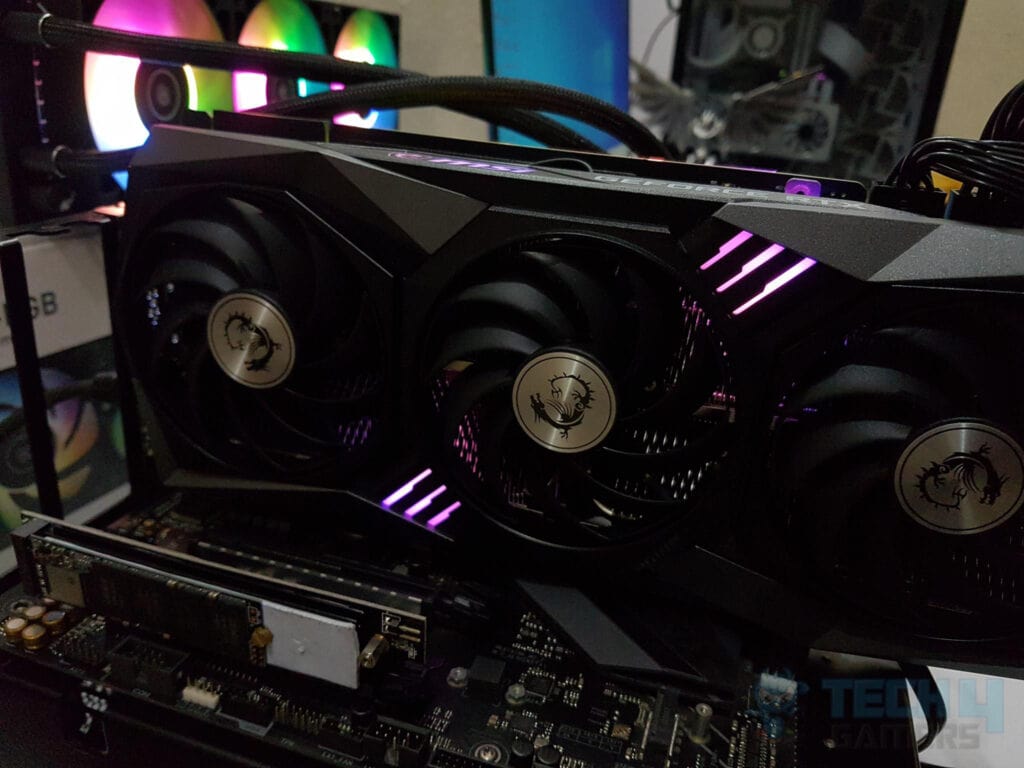
The motherboard and GPU are like teammates on your computer. The motherboard connects the GPU to the CPU and other components, providing power and data pathways.
It ensures your GPU can process images and videos smoothly. For this to work, the GPU and motherboard must be compatible, especially with the right PCIe slot and enough power. When they match well, your computer runs faster and delivers a better gaming or work experience.
Can A Motherboard Bottleneck A GPU?
Yes, a motherboard can bottleneck a GPU, but it doesn’t happen often. This happens when the motherboard’s features, like PCIe slots or power delivery, can’t support the GPU’s needs.
For example, using a high-end GPU with an old or budget motherboard may slow down your graphics card’s performance.
To avoid this, ensure your motherboard matches your GPU regarding compatibility, power, and PCIe support.
Read More: Can A Motherboard Bottleneck A CPU – Resolve Issues Quickly
How Much Will A Motherboard Bottleneck Your GPU
The time a motherboard can bottleneck a GPU depends on its features. If your motherboard has an older PCIe version, limited PCIe lanes, or low-quality power delivery, it might limit the GPU’s potential.
However, with modern motherboards and GPUs, this is rare. A high-end GPU paired with a low-end motherboard might see reduced performance, especially in demanding tasks.
Choosing a motherboard with updated features and good compatibility minimizes the risk of bottlenecking.
The Role Of The Motherboard In A GPU Bottleneck
The motherboard plays a big role in how well your GPU works. It connects the GPU to the CPU and other parts, transfers data, and supplies power.
If the motherboard isn’t fast enough or can’t provide enough power, it may bottleneck the GPU. Modern motherboards with updated PCIe versions and good power phases reduce this risk. So, always pick a motherboard that fully supports your GPU’s needs for the best performance.
Causes Of A GPU Bottleneck
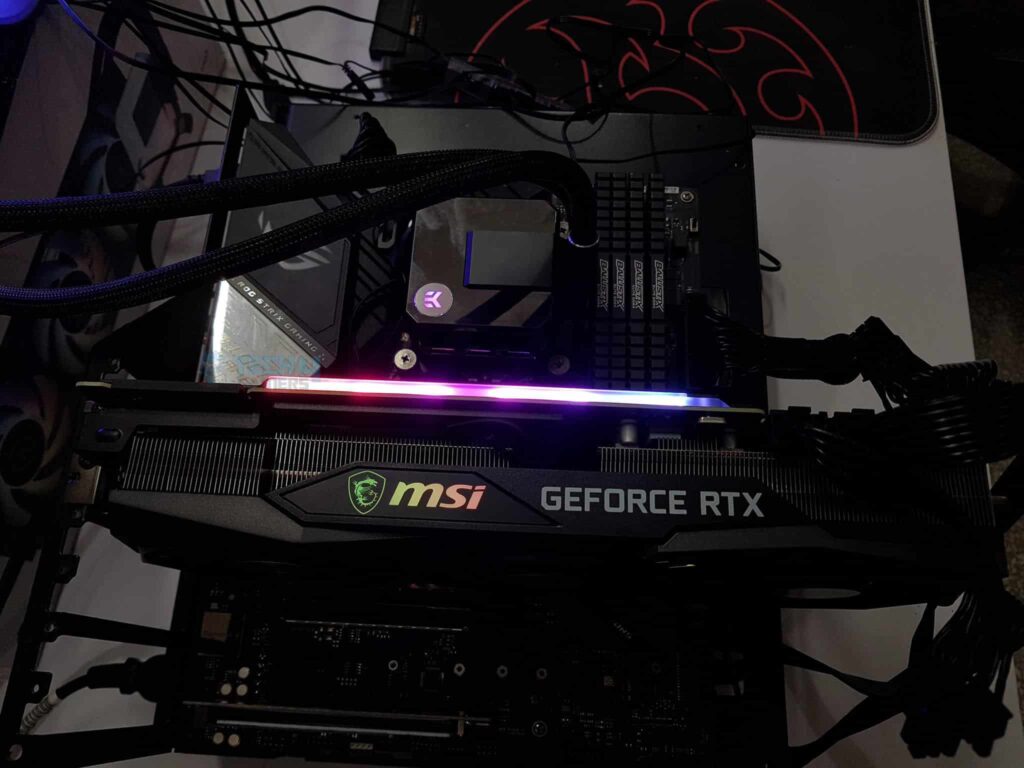
1. Insufficient CPU
A weak CPU can’t keep up with a powerful GPU, causing slowdowns. This happens when the CPU struggles to process data as fast as the GPU needs.
Symptoms include low frame rates and stuttering. Pairing a GPU with a strong, compatible CPU ensures your system works efficiently.
2. Lack Of RAM
Not enough RAM forces your system to use slower storage, which slows down your GPU. This is especially noticeable during gaming or multitasking.
Having at least 16GB of RAM helps your GPU perform at its best. Upgrading RAM is an easy fix to improve performance.
3. Over-Heating
Overheating slows down your GPU as it reduces its speed to cool down. Poor airflow or an overworked cooling system can cause this. Adding better fans or ensuring good ventilation can solve this issue, keeping your GPU running smoothly.
4. Not Enough Power Supply
A weak power supply can’t give your GPU enough energy to perform well. This results in lag or crashes. Upgrading to a power supply that meets your GPU’s wattage needs ensures smooth performance and prevents system instability.
5. Poorly Configured Settings
Bad settings, like low PCIe bandwidth or mismatched resolutions, can bottleneck your GPU. Optimize your graphics and system settings to match your hardware for better performance. Small tweaks can make a big difference.
6. Outdated Drivers
Old GPU drivers can cause compatibility issues and poor performance. Drivers help your hardware work well with your system, so keeping them updated is crucial. Regular updates from the manufacturer’s website ensure your GPU runs at its best.
How Can You Tell If Your GPU Is Being Bottlenecked?
You can spot a GPU bottleneck through signs like low frame rates, long loading times, or stuttering during games. If your GPU usage is low while the CPU is running at full capacity, it’s another clue.
Tools like task managers or performance monitors can help you check this. Fixes include updating drivers, adjusting settings, or upgrading components.
Keeping your hardware balanced ensures smoother gaming and faster performance without frustrating slowdowns.
How To Make Sure Your Motherboard Doesn’t Bottleneck Your GPU
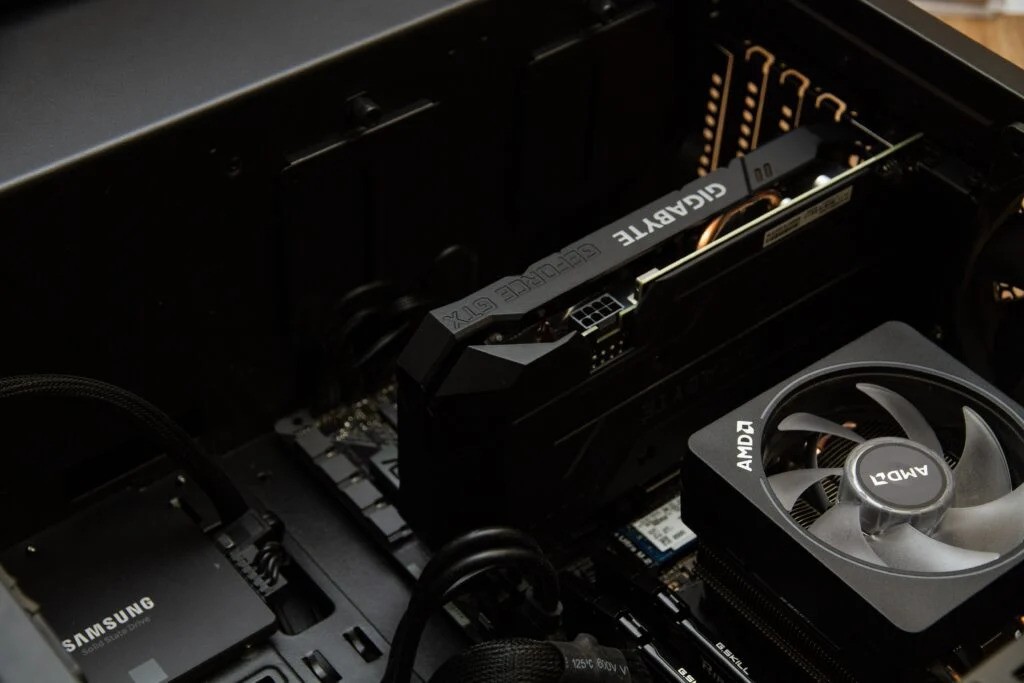
1. Use A Motherboard That Is Compatible With Your GPU
Always pick a motherboard that matches your GPU’s needs. Check for the right PCIe version, enough lanes, and proper power delivery.
Compatibility ensures smooth data transfer and prevents your GPU from slowing down, giving you the best performance possible.
2. Add More RAM
Adding more RAM boosts system performance and prevents slowdowns caused by memory shortages. A minimum of 16GB is ideal for gaming or multitasking. This ensures your GPU has the resources to handle graphics without struggling, improving overall efficiency.
3. Keep Your BIOS And Drivers Updated
Outdated BIOS or GPU drivers can limit performance. Regular updates ensure your system runs smoothly and supports the latest features.
Check for updates from the manufacturer’s website to prevent bottlenecks and get the best out of your hardware.
Must Read: Changed Motherboard And Windows Changed Editions: Guide
4. Adjust Your Graphics Card Settings
Fine-tune your GPU settings for better performance. Lowering ultra-high graphics settings or matching resolutions to your system’s capacity can reduce strain on your GPU. Small adjustments make a big difference, ensuring a smooth and enjoyable experience.
Can Motherboard Bottleneck CPU?
Yes, a motherboard can bottleneck a CPU if it lacks enough power or doesn’t support high-speed connections like PCIe.
This can cause the CPU to run slower than it should, especially if paired with a powerful CPU that needs better support from the motherboard.
Can Motherboard Bottleneck RAM?
Yes, a motherboard can bottleneck RAM if it has limited memory slots or doesn’t support high-speed RAM. If your motherboard only supports slower RAM speeds, it may hold back your system’s overall performance, especially in memory-demanding tasks like gaming or video editing.
Motherboard Bottleneck Calculator
A motherboard bottleneck calculator can help you check if your motherboard limits your system’s performance.
It considers your CPU, GPU, RAM, and motherboard specs to predict potential bottlenecks. Using such a tool helps optimize your system’s compatibility and overall efficiency.
Can a Motherboard Affect Performance
Yes, a motherboard plays a key role in system performance. It connects all parts and determines how fast data moves between components. It can slow down the entire system if it’s outdated or incompatible with high-performance CPUs, GPUs, or RAM.
How to tell if motherboard is bottlenecking
To tell if your motherboard is bottlenecking, check if your CPU or GPU is underperforming while the motherboard runs at full capacity.
You might also notice system instability or slower performance. Tools like performance monitors can help spot these issues easily.
Is This GPU a Bottleneck for My Old CPU?
Yes, if you have an old CPU and a powerful GPU, the CPU might struggle to keep up, causing a bottleneck. The GPU will wait for the CPU to process data, lowering overall performance. Upgrading the CPU can fix this issue.
Can a Motherboard Bottleneck a System?
Yes, a motherboard can bottleneck your system. It can limit the performance of your CPU, GPU, or RAM if it lacks enough PCIe lanes and memory slots or doesn’t support fast speeds. Ensuring your motherboard matches your components helps avoid bottlenecks.
Will a Bad Motherboard Cause a PC to Bottleneck?

Yes, a bad or outdated motherboard can cause a bottleneck. If it can’t provide enough power or support fast data transfer, it may slow down the performance of other components like your CPU or GPU. A good motherboard is crucial for smooth performance.
Can Motherboards Bottleneck Your Gaming System?
Yes, motherboards can bottleneck a gaming system. If the motherboard can’t handle high-speed data transfer or lacks the necessary PCIe lanes, your GPU or CPU performance may be limited. A motherboard with modern specs ensures smoother gaming and better overall performance.
You Should Know: PCIe Bifurcation Motherboard List – Top Picks For 2024!
Cause of CPU Bottleneck, Would a New Motherboard Fix It?
A CPU bottleneck happens when the CPU can’t keep up with the GPU. While a new motherboard can help with compatibility or power delivery, upgrading the CPU is usually the most effective fix. A better CPU will reduce bottlenecking and improve performance.
What is a Bottleneck on a Computer Motherboard? Are They Necessary?
A bottleneck on a motherboard happens when the motherboard slows down other components, like the CPU or GPU, due to limited speed or power.
They’re unnecessary, and upgrading the motherboard to a faster one can prevent this issue, improving overall system performance.
Will a 2-Year-Old Motherboard Cause a Bottleneck in Performance with the New GPU?
It’s possible that a 2-year-old motherboard could bottleneck a new GPU if it doesn’t support the latest PCIe version or lacks sufficient power.
However, if your motherboard is still up to date with compatible slots and power, it should work well with a new GPU.
FAQs
1. Can a Motherboard Affect GPU?
Yes, a motherboard can affect your GPU’s performance if it doesn’t provide enough power or support the required speeds.
2. What Can Bottleneck a GPU?
A CPU, slow RAM, or an old motherboard can bottleneck a GPU, preventing it from reaching its full potential.
3. Can My Motherboard Handle Any GPU?
Not all motherboards can handle any GPU. You must check compatibility with PCIe slots, power requirements, and size.
4. Can Motherboard Cause Low GPU Usage?
Yes, if your motherboard can’t handle high data transfer speeds, it can limit GPU performance, causing low usage.
5. Does GPU Get Power from Motherboard?
Yes, the motherboard provides power to the GPU through PCIe slots. However, high-performance GPUs often need additional power connectors.
6. Can Motherboard BIOS Affect GPU?
Yes, outdated BIOS can limit GPU performance. Updating BIOS ensures compatibility and optimal functioning of your GPU.
7. Do You Need a Good Motherboard for a GPU?
Yes, a good motherboard is essential for GPU performance. It ensures proper power delivery and supports high-speed data transfer.
8. Can a Motherboard Be Too Old for GPU?
Yes, older motherboards may not support modern GPUs. They might lack the necessary PCIe slots or power delivery capabilities.
9. What Is a Bottleneck? Is It Possible for the Motherboard to Be a Bottleneck for an SSD?
A bottleneck occurs when one component limits another. Yes, a slow motherboard can bottleneck an SSD by limiting data transfer.
10. Can a Motherboard Bottleneck a GPU or Will Bottlenecking Only Occur with a GPU’s and CPU’s Interaction?
A motherboard can bottleneck a GPU if it doesn’t support high-speed data transfer or lacks sufficient PCIe lanes.
Conclusion
In conclusion, while a motherboard can bottleneck a GPU, it’s relatively rare with modern systems. Ensuring compatibility, updated features, and sufficient power delivery is key to avoiding bottlenecks and achieving optimal performance in your PC build.

